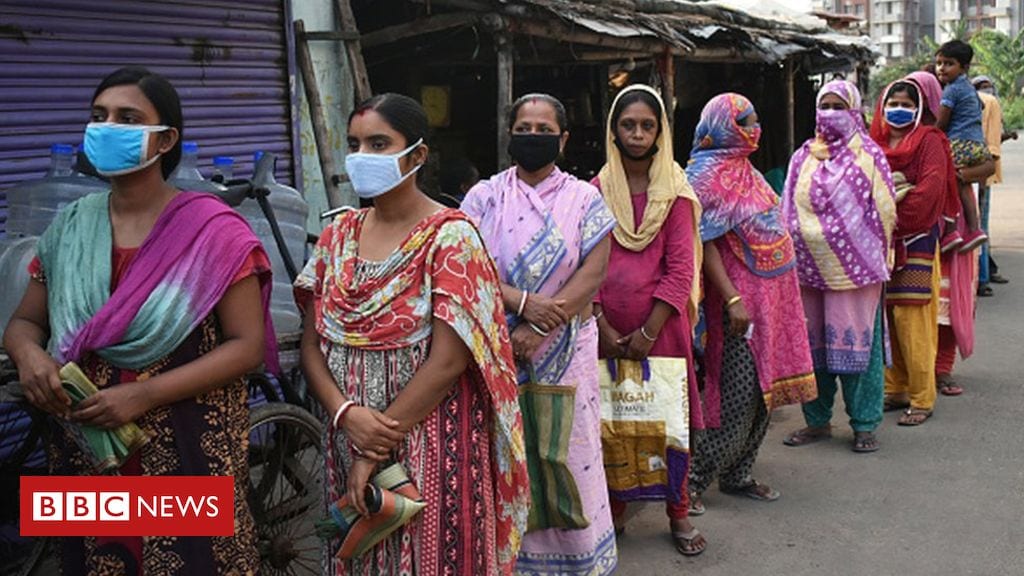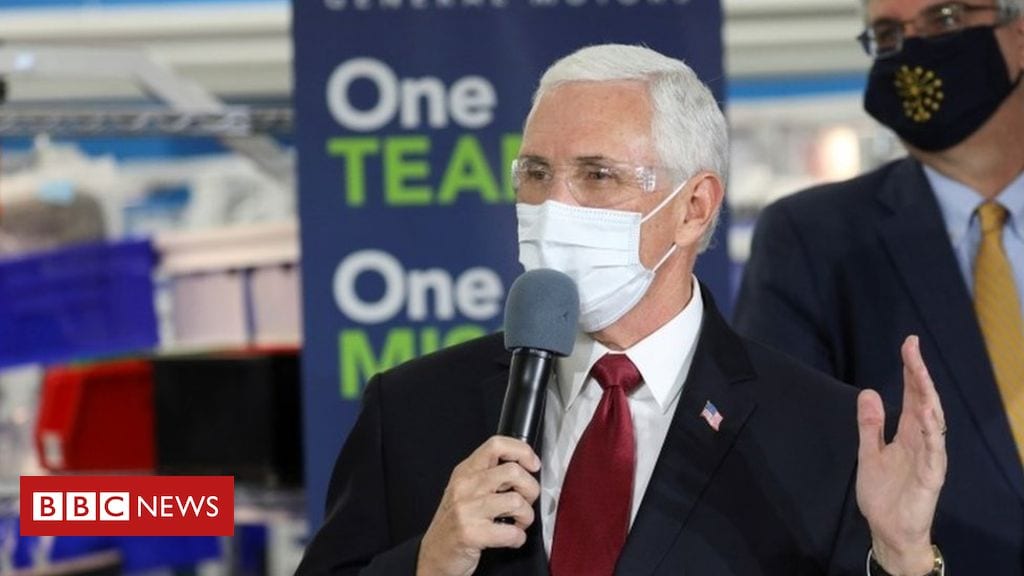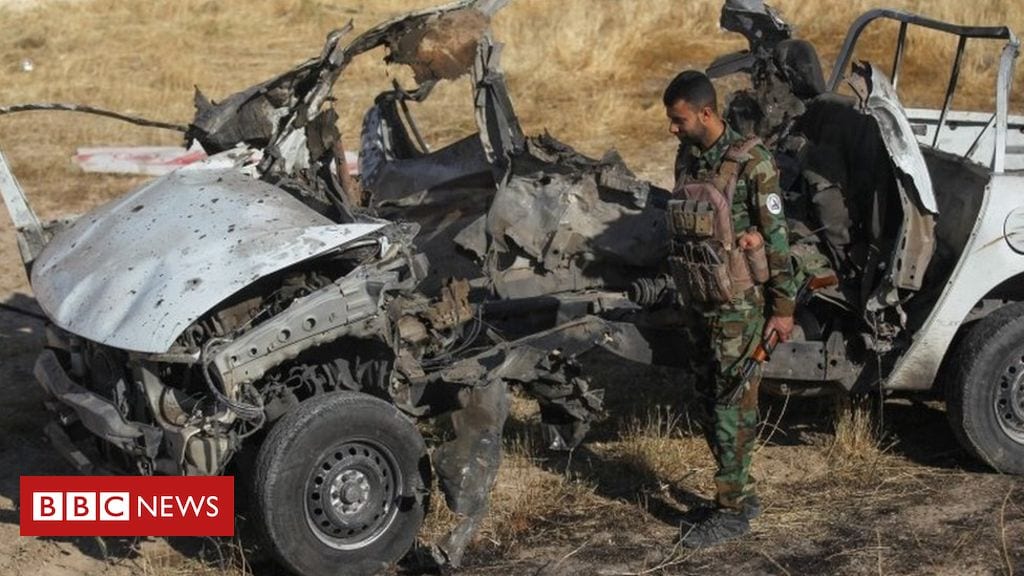[ad_1]
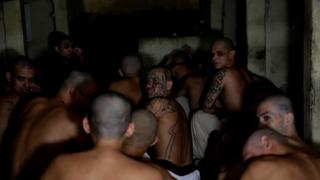
Image copyright
EPA
Prisoners from rival gangs have been locked up together as part of the stricter measures
The government of El Salvador has started sealing off the doors and windows of prison cells in which gang members are held.
On Monday, security minister Osiris Luna said that “no ray of sunlight” would enter the cells holding jailed gang members.
He also released photos of the cell doors being barricaded with plywood and in some cases sheets of metal.
The move comes after more than 50 people were killed over the weekend.
Mr Luna said the move was necessary to stop the recent wave of gang-related killings in the country. He said the inmates were passing messages to the outside about who they want killed.
President Nayib Bukele had earlier posted a video on Twitter which he said showed inmates forming letters with their T-shirts to send messages to other cells.
The president, who campaigned on a promise to end El Salvador’s rampant gang violence, was elected last year.
Since he took up office in June, he has introduced tougher measures within the prisons holding gang members.
The measures have included:
- Keeping inmates locked up in their cells for all but one hour a day
- Blocking mobile phone signals and wifi
- Mixing up prisons so they hold members from rival gangs
A spike in murders over the weekend prompted him to further toughen those measures. First, he ordered a 24/7 lockdown and on Monday his security minister followed that up with ordering the sealing of the cell doors and windows.
Image copyright
EPA
Sheets of metal are being installed in front of the cell doors
The government also published photos of inmates with their hands bound and made to sit in close proximity while their cells were being searched.
The photos have caused outrage among human rights groups who have pointed out that as well as being “humiliating and demeaning” to the prisoners, they show that social-distancing measures to combat the spread of coronavirus are being flaunted in El Salvador’s prisons.
Image copyright
Reuters
Inmates were kept in extremely close proximity to each other while their cells were searched
Image copyright
Reuters
These images, released by the government, have sparked fears about the potential spread of coronavirus in jails
“Prisoners have been sentenced to deprivation of liberty, not to death. Governments must take urgent measures to protect them during Covid-19,” José Miguel Vivanco of Human Rights Watch’s Americas division tweeted.
President Bukele has come in for criticism by rights groups before but he argues his zero tolerance approach to crime has both been successful – there have been several days since he came to power in which no murders were recorded – and popular among citizens who have suffered from gang violence for decades.
You may want to watch:
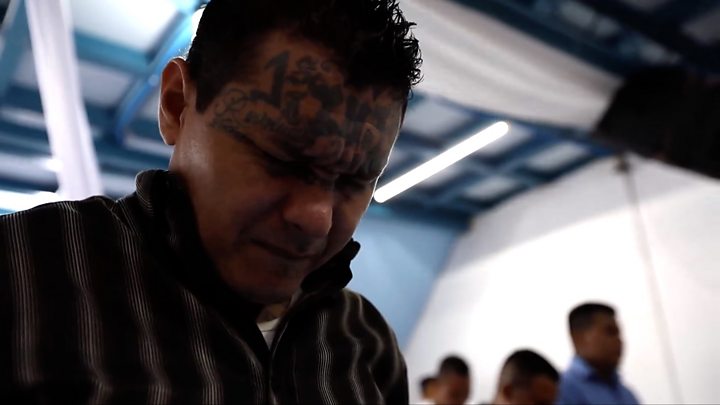
Media playback is unsupported on your device



